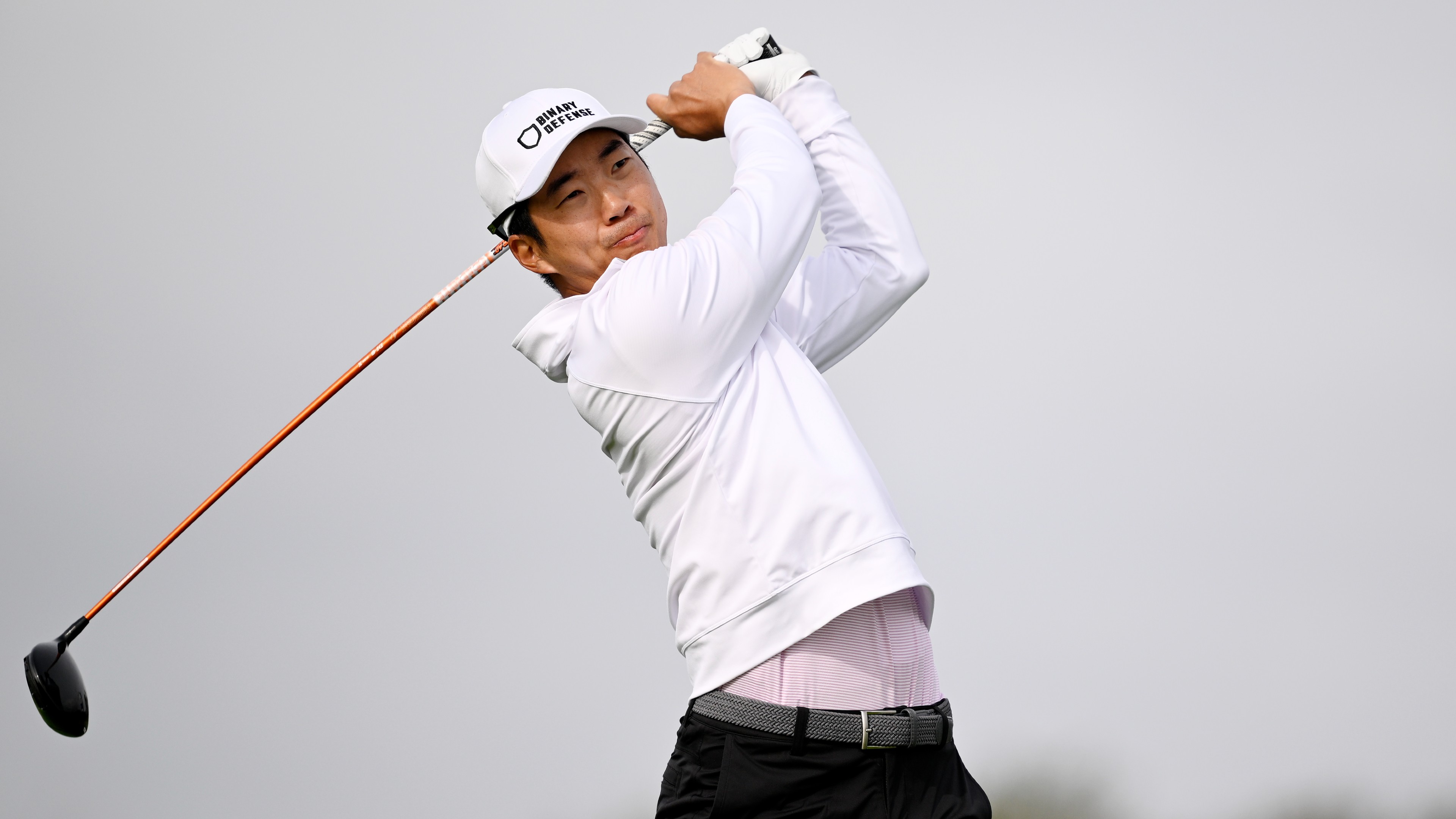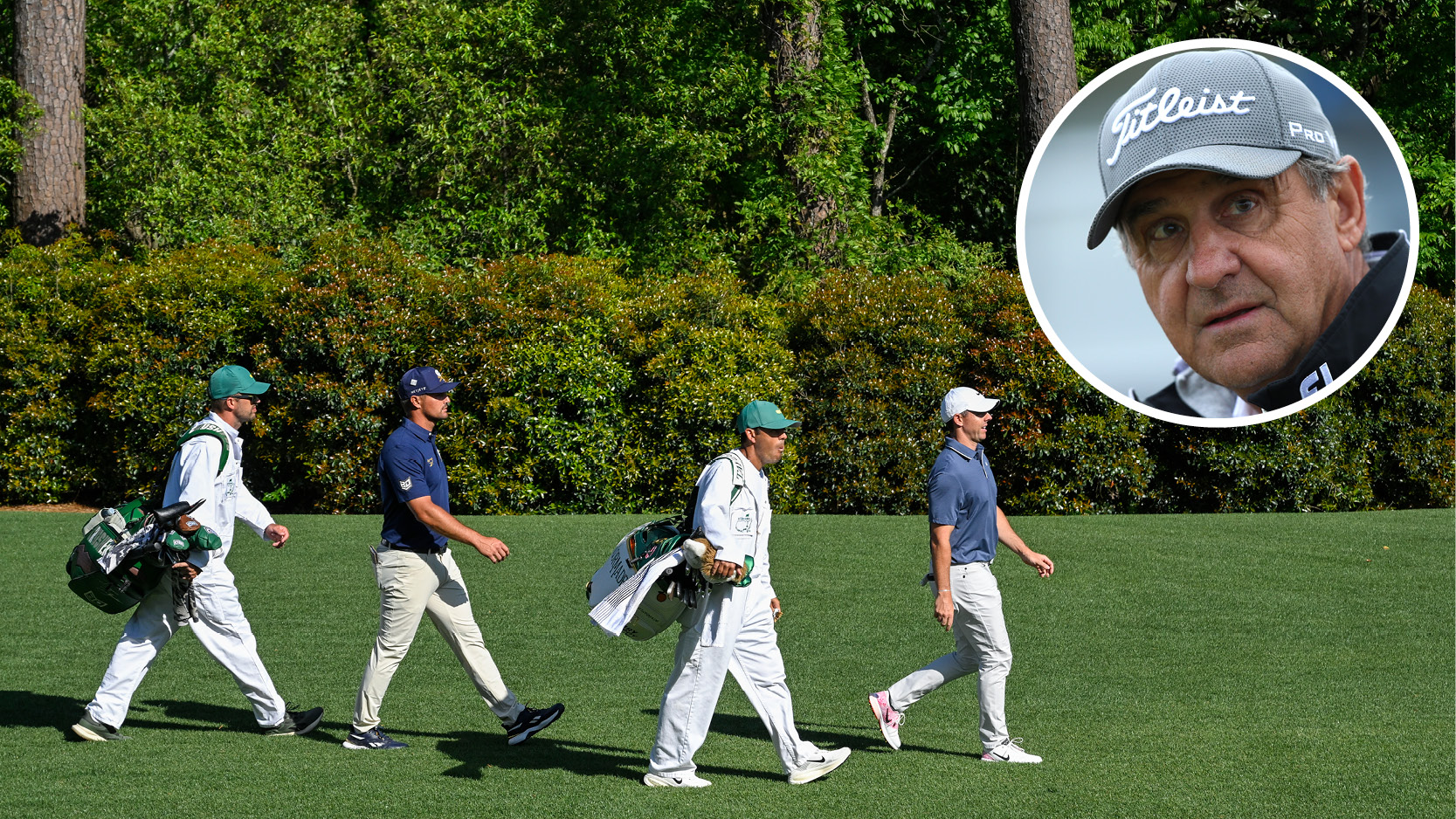PGA Tour Pro Reveals 'Lowest Hanging Fruit' To Lowering Your Handicap
Everyone is after more distance off the tee but how do you go about it? Well, PGA Tour Pro Michael Kim revealed his tips...


If one thing unites all amateurs, it's a desire to bring down your handicap. But with limited time and a mountain of different advice, it can often be hard to know where to start.
Well, look no further than PGA Tour pro Michael Kim, who took to social media to explain the best place to start to begin lowering your handicap.
The American has enjoyed a superb rise up the paid ranks since regaining his Tour card in 2022, notching up four top-ten finishes last season while recording a sixth-placed finish at the American Express in January to kickstart his 2024 campaign.
Alongside that, Kim has also been a vocal presence on social media, documenting his experiences on Tour while also sharing tips and insight into his game. An area that the 30-year-old has greatly focused on in recent years is his driving and the results are evident.
Kim has gained a whopping 20 yards since turning professional in 2016 and on social media suggested that increasing one's distance off the tee is not just useful for professionals but also the best way for recreational players to cut down their handicap.
"My average ball speed my rookie year was 162 and max was 170. Now my average is 172 and max is 180-182," he said.
My avg ball speed my rookie yr was 162 and max was 170. Now my avg is 172 and max is 180-182. With enough training and diligence, you can absolutely get longer, and not just 5 or 6 yards, 20-30 yards like I have. Distance is the lowest hanging fruit to lower ur handicap pic.twitter.com/Av9tGzsd6EFebruary 16, 2024
"With enough training and diligence, you can absolutely get longer, and not just five or six yards, 20-30 yards like I have. Distance is the lowest hanging fruit to lower your handicap."
Get the Golf Monthly Newsletter
Subscribe to the Golf Monthly newsletter to stay up to date with all the latest tour news, equipment news, reviews, head-to-heads and buyer’s guides from our team of experienced experts.
In another more detailed post, Kim expanded on the key areas he focuses on, including his workouts, maximising his speed and fine-tuning his technique.
"My trainer and I are not huge fans of golf-specific workouts," he said. "I do general strength stuff like Trap bar deadlifts, Bulgarian split squats, incline dumbbell bench, pull ups, core work etc. Glutes and core are a must to make sure the back is healthy."
When talking about adding speed, he said: "In order to actually gain speed, you have to train for it. It’s not a you either have it or you don’t type of thing. Yes, some are naturally faster than others but you can absolutely increase your speed no matter your age if you train for it."
Kim also acknowledged the huge technological improvements, most notably with drivers, that have also allowed him to be more confident with his approach.
"There’s obviously lots of talk about how much farther guys are hitting it and it makes it sound like you pick up a new driver and you’ll instantly gain 10 yards without doing anything different, which is not the case," he ended.
"What has changed the most has been our mentality. We have learned from strokes gained/stats about how the courses are currently designed and set up, as long as we can get it to the green in regulation, we should hit it as far down there as possible."

Ben joined Golf Monthly having completed his NCTJ in multimedia sports journalism at News Associates, London. He is now a freelance journalist who also works for The Independent, Metro, UEFA and Stats Perform.
-
 Volvo China Open 2025 Picks, Odds And Predictions
Volvo China Open 2025 Picks, Odds And PredictionsFollowing a break for The Masters, the DP World Tour returns for the final two weeks of its Asian Swing and the Volvo China Open is the penultimate event
By Jonny Leighfield
-
 Rory McIlroy's Sports Psychologist Explains Why He 'Didn't Talk' To Bryson DeChambeau In Masters Final Round
Rory McIlroy's Sports Psychologist Explains Why He 'Didn't Talk' To Bryson DeChambeau In Masters Final RoundDeChambeau raised eyebrows at Augusta National when claiming that McIlroy wouldn't engage in conversation during the final round of The Masters
By Jonny Leighfield